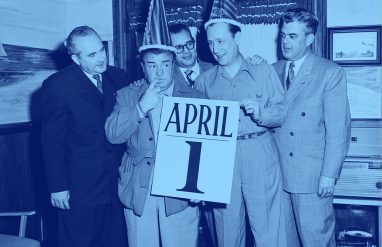WATCH: Unteaching "Boys Will Be Boys" And "Boys Don't Cry"
Boys will be boys. It’s an idiom we hear tossed around far too often. But, what does it actually mean, and why did we ever start saying it? And … what about girls—who or what will they be?
Who decided boys will be boys, anyway?
The phrase boys will be boys was first recorded in English in 1589. It originated from a Latin proverb: “Children (boys) are children (boys) and do childish things.” While a bit obvious, if it had remained intact as such, it wouldn’t be so problematic. Children in fact do childish things, and that’s to be expected to some degree.
Like a bad game of telephone, however, the phrase has morphed over the years into a flippant way to excuse the actions and attitudes of boys and men of all ages. It’s typically used to explain rowdy or naughty behavior—things like jumping in mud puddles, roughhousing, and raising Cain. It’s also, unfortunately, used to explain away things like sexual assault allegations and other serious crimes. It doesn’t hold individuals responsible for their behavior and choices but rather infers all males are preprogrammed to act in such ways.
Beyond that (which was a huge “that”), the phrase promotes gender stereotypes. Not all boys like to get dirty, some prefer roses to roughhousing and, thankfully, most men aren’t violent. Like the phrase, boys don’t cry, it sets a standard for what male behavior should be. Instead of assuming men are individuals with unique personalities, it promotes that idea that anyone who doesn’t live up to this arbitrary definition of masculinity is abnormal. It attempts to put a neat and tidy bow of oversimplification on individual behavior, and it’s time we stop saying it … and more importantly, stop believing it.
What exactly will girls be?
Oh yeah, what about the girls? There isn’t a well-known equivalent phrase to describe females; girls will be girls is seldom heard. The phrase girly girl, espouses the same type of stereotypical thinking about what it means to be a girl, and big girls don’t cry is used almost as frequently as the saying about boys. These phrases don’t, however, offer the same blanket excuse for female behavior as boys will be boys. While this gap perhaps represents an example of inequality, the fact that such a phrase doesn’t exist about girls shouldn’t be lamented. Neither gender benefits from such stereotypical, overly simplified language and ideas.
Boys will be … (insert better word than boys here)
It’s time to expunge the phrase boys will be boys from our vernacular. Might we suggest a whole slew of words in the dictionary to better complete that phrase, starting with accountable?














